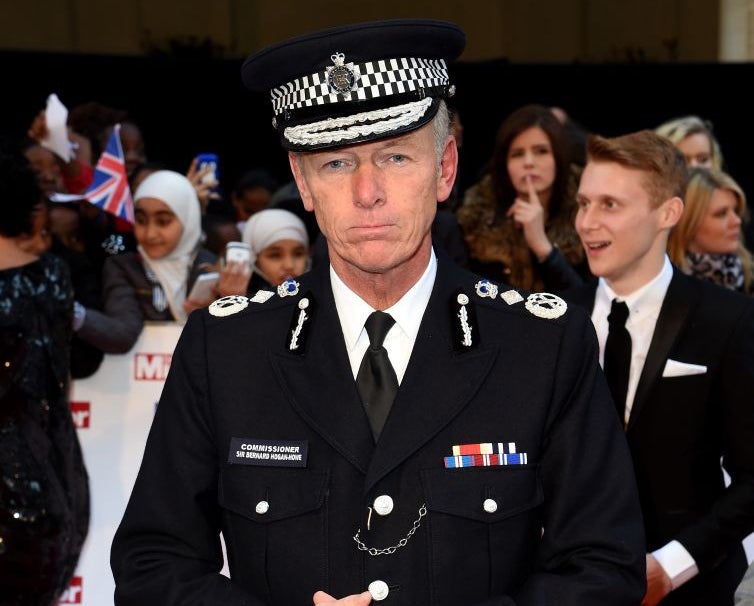More than 1,000 extremist websites taken down every week, London police chief Sir Bernard Hogan-Howe says
The Commissioner of London Metropolitan Police said in excess of 300,000 sites had been removed in the past 18 months

Your support helps us to tell the story
From reproductive rights to climate change to Big Tech, The Independent is on the ground when the story is developing. Whether it's investigating the financials of Elon Musk's pro-Trump PAC or producing our latest documentary, 'The A Word', which shines a light on the American women fighting for reproductive rights, we know how important it is to parse out the facts from the messaging.
At such a critical moment in US history, we need reporters on the ground. Your donation allows us to keep sending journalists to speak to both sides of the story.
The Independent is trusted by Americans across the entire political spectrum. And unlike many other quality news outlets, we choose not to lock Americans out of our reporting and analysis with paywalls. We believe quality journalism should be available to everyone, paid for by those who can afford it.
Your support makes all the difference.London police take down over 1,000 extremist web pages every week, London's police chief has said.
Commissioner of Metropolitan Police Sir Bernard Hogan-Howe said the force had requested 300,000 pages be removed in the past 18 months.
Speaking to the London Assembly’s Police and Crime Committee, Sir Hogan-Howe said the majority of websites were terrorist related but that a small minority involved far-right extremism.
He said: "We are taking down about 1,000 sites a week which are extremist in nature. Now most of that is to with terrorist type posting but its not only that. Its also extremes on both sides. There are also right wing sites.
"And where we are legally able to do so, we are asking companies to take them down and they do so."
He said it "made an impact" but "doesn’t stop it unfortunately because the internet is so pervasive".
It comes as the London Assembly’s report on the Prevent counter-terrorism programme, which was published on Thursday, suggested technology companies needed to do more to engage with counter-terrorism police and local communities to crack down on extremism on social media.
It said "the ability to monitor the terrorist threat has reduced because terrorists and criminals had changed their communication tactics and because of encryption technologies that exist on electronic devices".
The report suggested authorities create a map of where extremism online activity was taking place and develop local community resources to provide a "counter-narrative" to extremist ideology.
It comes after David Cameron announced the security services had foiled seven terror plots against the UK in the past six months, following a string of co-ordinated terrorist attacks on Paris in November.